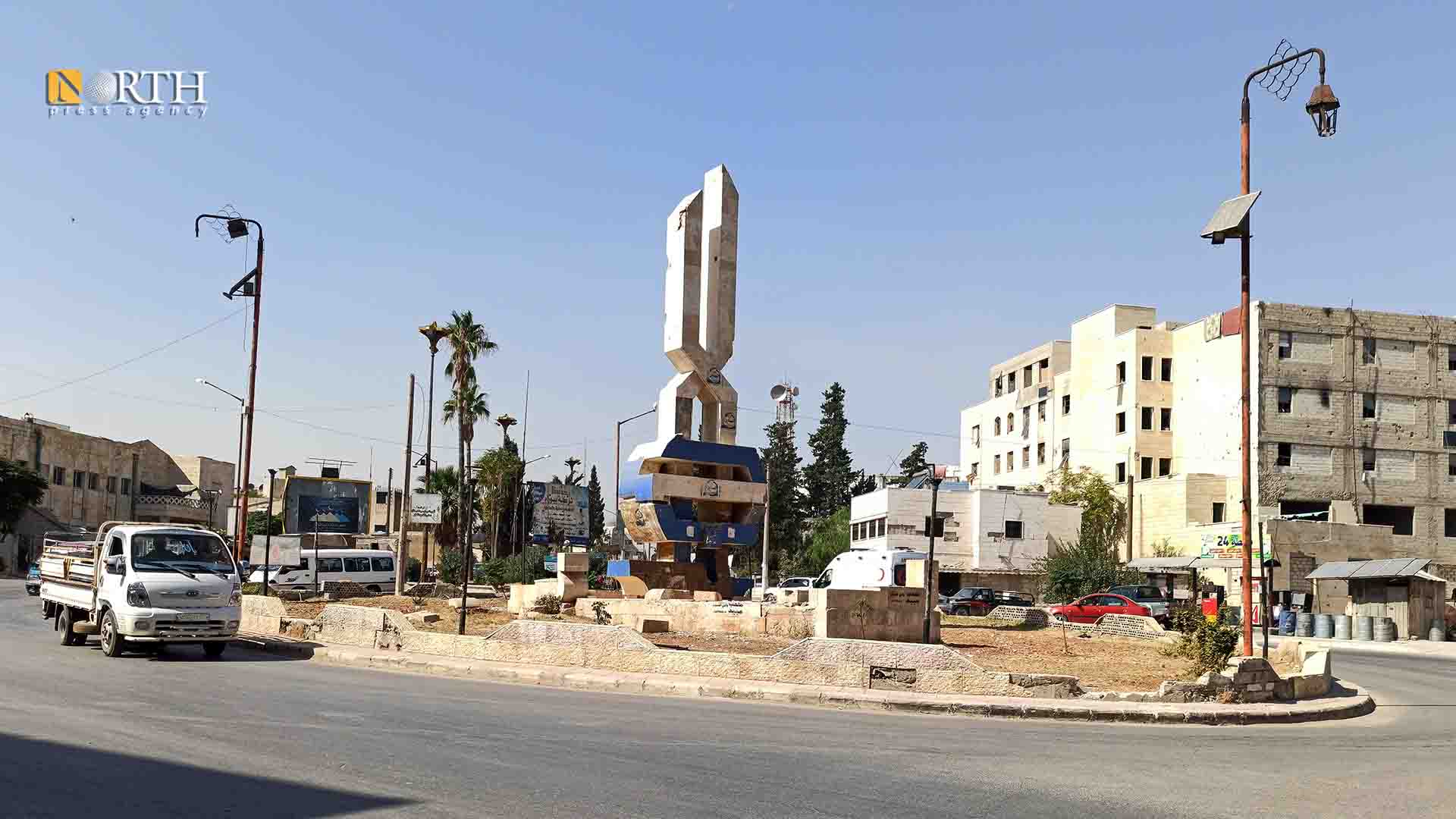IDLIB, Syria (North Press) – On Sunday, Turkish-backed armed opposition groups denied Russian accusations of preparing false flag chemical attacks in Idlib, and said that these accusations always made to justify attacks against opposition-controlled areas.
Russian forces have continued to warn of a possible chemical bombardment that Syrian opposition factions may launch in Idlib in Syria’s northwest.
On October 14, the Russian Center for Reconciliation in Syria issued new warnings about a potential false flag chemical attack by the opposition groups in Idlib, northwestern Syria.
Marine Major General Alexander Grynkiewicz, deputy head of the Russian Reconciliation Center for Syria, stated that “militants transported barrels of chlorine to the Khan Sheikhoun area,” according to the Russian Interfax agency.
This comes a month after the Russian Ministry of Defense issued a similar warning about the opposition groups preparing to film a false flag chemical attack in the Zawiya Mountain.
The ministry indicated at the time that unidentified gunmen and a convoy of three trucks loaded with various chemical containers arrived in the city in preparation for the implementation of the operation.
Colonel Mustafa Bakkour, the official spokesman for the Army of Glory (Jaysh al-Izza) opposition group, told North Press that Russia usually makes these accusations to justify certain attacks on civilians in northern Syria.
Bakkour expected Russia to carry out a new chemical attack in Idlib, then “accuse the revolutionary factions,” as he described it.
He added, “All chemical and non-chemical attacks targeting civilian facilities were preceded by Russian media intimidation.” He pointed out that such accusations are “a prelude to what could be chemical attacks on hospitals or on civil defense teams.”
Military circles in Idlib talk about a move by some international bodies to resume the use of chemical weapons against civilians.
It says that Russia is working today to preempt these efforts by accusing the opposition groups of “disrupting the international efforts.”
Omar al-Idlibi, a military commander in the National Front for Liberation, ruled out in an interview with North Press that Russia would carry out a new chemical attack in Idlib.
He said that what is happening is a Russian campaign “to show the General Assembly that it is working to fight terrorism.”
Naji Mustafa, the National Front for Liberation’s spokesman, told North Press that the Syrian government is the only one that has these weapons, that they have previously used chemical weapons in many areas, including Eastern Ghouta, Khan Sheikhoun, Saraqeb, and Daraya, and those who carried them out were determined by the United Nations committees.
In April, a report by investigators of the Organization for the Prohibition of Chemical Weapons accused the Syrian government’s air force of dropping bombs containing toxic chlorine and sarin gas on the city of Lataminah in the countryside of Hama in March 2017.
In a briefing to the UN Security Council earlier, Izumi Nakamitsu, the UN High Representative for Disarmament Affairs, questioned the credibility of the Syrian government’s announcement that it is disposing of its chemical weapons stockpile.
Turkish-backed opposition armed groups have been subjected to similar accusations of using poison gas against residents of the Kurdish-majority Sheikh Meqsoud neighborhood in Aleppo city. Residents, doctors, and officials of the People’s Municipality in the neighborhood accused the opposition groups of bombing the neighborhood twice with toxic gases, once in 2013 and another in April 2016.
This caused, according to the testimonies of residents in the neighborhood, the deaths of several people, including children, and widespread suffocation cases.
Islam Alloush, the spokesman for Jaysh al-Islam, admitted to attacking the Sheikh Meqsoud neighborhood by using “unauthorized weapons in this type of confrontation.”

